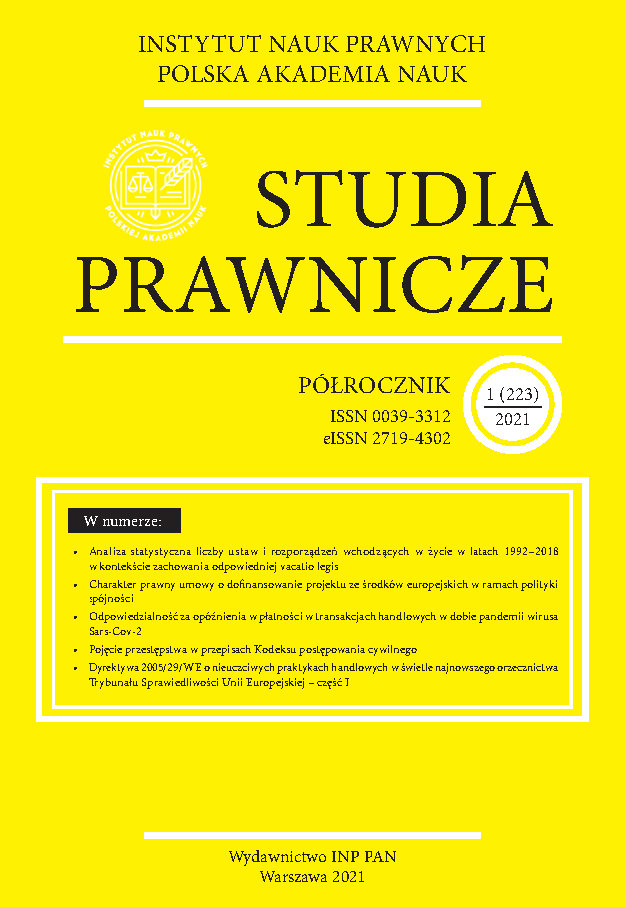Rola polityków i mediów w społecznym odbiorze przestępczości
Politicians, media and society’s perception of crime
Author(s): Konrad Buczkowski, Witold Klaus, Anna Kossowska, Irena Rzeplińska, Dagmara Woźniakowska-FajstSubject(s): Law, Constitution, Jurisprudence
Published by: Instytut Nauk Prawnych PAN
Keywords: crime; politicians; Central and Eastern Europe
Summary/Abstract: One of the more important effects of the political transformation in Central and Eastern Europe is the emergence of the problem of criminality in the social awareness of the inhabitants of these countries. After a long period in which information on the risk of crime was controlled (unless it concerned crimes against the Socialist state) the societies of this part of Europe were deluged by information on criminal incidents and by opinions and discussions on the subject of criminality. Crime in itself became an article “sold” in the media and a political football. Fear of crime, which had scarcely existed prior to the transformation, appeared as a phenomenon in the social consciousness. Influencing the heightened fear of crime to a certain extent was a rise in criminality and a change in its nature, but more importantly a general state of uncertainty brought about by the deconstruction of life as it used to be and the established rules on which society functioned. Criminality and the related feeling of danger is already probably a permanent element in the public face of politicians mainly, but not exclusively, from populist parties. In light of the tough attitudes manifest in Polish society, supporting harsh punishment, it is unsurprising that politicians are quick to include punitive slogans in their election programs in hopes of boosting their opinion poll ratings. Their calls for the toughening up of criminal responsibility are founded on related public expectations. It is not a new phenomenon. It was also present in the communist years when the will of society, to which communist politicians referred to when justifying their increasingly absurd ideas about penal policy, was to a significant degree a propaganda creation made by the media they themselves controlled. It is still the same today, the only thing that has changed is how the media is “controlled” or shall we say “influenced” by the politicians. While there are many differences between the countries that in the last twenty years experienced the transformation from communism to democracy, they are starting to be subject to the same rules as “mature” Western European democracies. The same processes can be seen in the behavior of politicians with regard to troubling social phenomena and similar reactions by the media to crime and the reported fall in the fear of crime.
Journal: Studia Prawnicze
- Issue Year: 191/2012
- Issue No: 2
- Page Range: 103-134
- Page Count: 32
- Language: Polish

